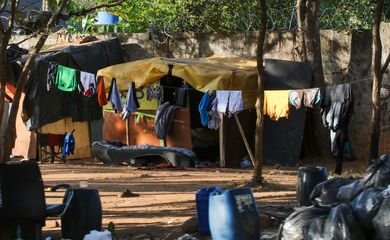Brazil: Families headed by black individuals mostly affected by hunger

Hunger poses a significant challenge for one-fifth of families led by self-declared brown or black individuals in Brazil (20.6%). This figure is twice as high when compared to families headed by white individuals (10.6%).

The data, released on Monday (Jun. 26), refer to the period between November 2021 and April 2022. They are part of the 2nd National Survey on Food Insecurity in the Context of the COVID-19 Pandemic in Brazil (II Vigisan).
In total, 33.1 million people have been impacted by hunger in the country, with specific racial and gender groups bearing a greater burden. Households headed by black women account for 22 percent of those experiencing this problem, nearly double the percentage of those led by white women (13.5%).
"The issue of food insecurity and hunger in Brazil is now even more apparent. We urgently need to recognize the intersectionality of racism and sexism in the structural formation of Brazilian society, and to implement and enhance public policies that promote equity, ensuring unrestricted and equal access to food," emphasizes Professor Sandra Chaves, coordinator of the Brazilian Research Network on Sovereignty and Food and Nutrition Security (Penssan).
In a broader context, previously released data from the study revealed that only four out of ten families in the country enjoyed full food access, meaning they were in a condition of food security. Conversely, 125.2 million people experienced some level of food insecurity, categorized as mild, moderate, or severe. These levels were measured using the Brazilian Scale of Food Insecurity (Ebia), also employed by the government´s statistic agency IBGE.





